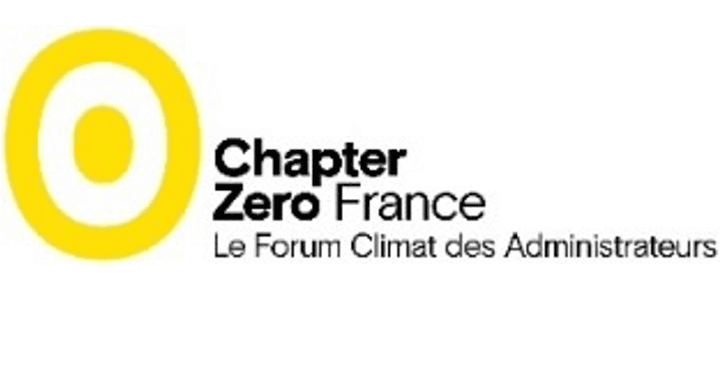This section is to be read in conjunction with the above EU section, and focuses specifically on rules under French law regarding directors’ duties and obligations as they pertain to climate change.
There are an increasing number of cases before the French authorities demonstrating rising awareness of climate change. More and more judicial actions are being initiated against the French government or French corporations in this area. An illustration of this is the so-called ‘case of the century’ (Affaire du siècle), where the Paris Administrative Court found the French government liable for ecological damage due to its inability to comply with its commitments to meet certain targets for reducing greenhouse gas emissions, and ordered the state to take actions to cut carbon emissions and repair ecological damage by 31 December 2022.1Further, several actions have been initiated, mainly by associations and NGOs, against French corporations for alleged breach of their devoir de vigilance (see below) under French law; the claimants aim to obtain from French courts an injunction to compel such corporations either to put in place or to enhance their vigilance plan (plan de vigilance) in order to meet the greenhouse gas emissions target set by the government under the Paris Agreement.
French law has developed several mechanisms (obligations and incentives) to ensure that companies take environmental issues, including climate change, into greater consideration when conducting their business and interacting with third parties. French companies are subject to a wide range of international and domestic legal norms related to climate change. The following summary focuses on the main legal provisions applicable to French companies and/or their board directors.
Directors' Duties and Climate Change
Requirement to take into account social and environmental factors: Since the enactment of the PACTE Law in May 2019,2 the French Civil Code specifies that all French companies should be managed in the interest of the corporation, taking into consideration the social and environmental issues associated with their activities.3 Failure to comply with this provision does not render the company's acts or deliberations void.4 However, although we are not aware of any judicial decisions rendered on this basis at the time of drafting, failure to take social and environmental issues into consideration may trigger a liability on the part of directors, under the terms of general civil liability. In addition, an inadequate understanding of social and environmental risk factors may also constitute a valid reason to remove a director.
Corporate purpose (raison d'être): The PACTE Law also created the possibility for any company to specify a corporate purpose, or raison d’être, in its articles of association. French law defines the raison d'être as follows: "the principles adopted by the company and for the respect of which it intends to dedicate resources in the conduct of its business".5 In essence, the raison d'être is characterised by the expression of a public interest purpose that transcends the sole pursuit of short-term profits.
Furthermore, the French Commercial Code specifically requires the board of directors and the management board of a limited company (société anonyme) to take into consideration "the company's corporate purpose, if any.”6 These provisions define the obligations of directors in terms of serving the long-term interests of the company. As such, a corporate purpose can serve as a framework for strategic decision-making.
Directors' Disclosure Obligations and Climate Change
Non-financial reporting: As laid out in the EU section above, the EU Non-Financial Reporting Directive (NFRD),7 which was transposed into French law in 2017,8 defines a series of reporting requirements.9 Specific non-financial reporting obligations apply to (i) French listed companies with more than 500 employees and more than EUR 40 million of net turnover or a total balance sheet of EUR 20 million, and (ii) non-listed French companies with more than 500 employees and more than EUR 100 million of net turnover or a total balance sheet of EUR 100 million.10 Companies must include a statement of non-financial performance (Déclaration de Performance Extra-Financière or DPEF) in the management report. This statement must include a presentation of the company's business model, an analysis of the main risks associated with the company's activities, a description of the policies and mitigation measures taken in response to such risks, and the results of these measures, including performance indicators.11 The DPEF must also describe how the company takes into consideration the social and environmental impacts of its activity. More specifically, it must include information related to the company’s contribution to the causes of climate change, through both its operations and the use of the goods and services it provides.12 The DPEF must be made available to the public and easily accessible on the company's website within eight months from the end of the financial year and for a period of five years.13
In August 2021, the French Climate and Resilience Law14 entered into force, which contains further details on what the DPEF must cover in respect of climate change, stating that the information which companies must disclose “includes the direct and indirect greenhouse gas emissions related to transport activities upstream and downstream of the activity and is accompanied by an action plan to reduce these emissions, in particular through the use of rail and waterway modes as well as biofuels with a virtuous energy and carbon balance and electromobility.”15
If the management report does not include this DPEF, any person having a legitimate interest may request that the French Courts enjoin the board of directors or management board (as applicable) to provide such information, and subject it to a daily fine, if deemed appropriate. If the judge grants such a request, the said fine and costs of the proceedings must be borne by the directors or members of the management board, individually or jointly as the case may be.16
The Corporate Sustainability Reporting Directive (CSRD) of 14 December 2022 expands the scope of the companies which are required to make a DPEF includes more stringent and harmonised reporting obligations.17 Sustainability information disclosed pursuant to the CSRD will be required to be assured. The first companies required to report under the CSRD (those which are already subject to the NFRD) will be required to make their first CSRD disclosures in 2025, in respect of FY2024. The CSRD has not yet been transposed into national French law, but – depending on the final content of the reporting obligations – is likely to go further than the climate disclosures required under the French Climate and Resilience Law. Further information is available in the above EU section.
In May 2021, new disclosure obligations regarding the governance system of financial market participants were published18 as the French implementation of article 3 of the Sustainable Finance Disclosure Regulation (SFDR).19 They cover the following: (i) knowledge, skills and experience of the entity’s governance bodies, including administrative, supervisory and management bodies (e.g. board of directors), and oversight of the integration of ESG criteria within the investment policy and strategy of the entity and its controlled entities (e.g. level of oversight and associated process, reporting of results, skills); (ii) inclusion of sustainability criteria in the remuneration policy, and disclosure of the criteria linking remuneration with key performance indicators; and (iii) integration of sustainability criteria in the articles of association (a.k.a. bylaws) of the board of directors or supervisory board.
Corporate duty of vigilance: The French corporate duty of vigilance (devoir de vigilance)20 entails a legally-binding obligation for French parent companies to identify and prevent adverse human rights and environmental impacts resulting from their own direct activities, including from the activities of the companies they control, as well as indirectly from the activities of the subcontractors and suppliers with which they have an established commercial relationship. This duty only applies to the largest companies in France (i.e. any company established in France with at least 5,000 employees within the company’s head office and its direct and indirect subsidiaries, whose head offices are located on French territory; or that employs at least 10,000 people within the company and its direct and indirect subsidiaries, whose head offices are located on French territory or abroad). Such companies must assess and address the risks of serious harm to people and the planet under an annual plan de vigilance. Such risks should include, where appropriate, the risks associated with climate change. The French Climate and Resilience Law has introduced an additional requirement for companies that produce or market products resulting from agricultural or forestry activities, requiring them, as of 1 January 2024, to include in their plan de vigilance reasonable vigilance measures to identify the risks and prevent deforestation associated with the production and transport to France of imported goods and services.21 Courts may impose injunctions to compel compliance with such legal reporting obligations. In addition, the company's tortious liability could be sought where its failure to adopt an appropriate plan de vigilance has caused harm. Legal actions on the basis of the companies’ duty of vigilance in relation to climate change risks have already been initiated.22
Practical Implications for Directors
Despite the absence as of yet of any case law that precisely defines the scope of directors' duties or helps directors determine the scope and extent of the above-mentioned obligations, the recent changes in legislation clearly indicate that French directors will have to play an increasingly important role in taking environmental issues into account. This role particularly concerns the company’s contribution to climate change. In this regard, our practical recommendations are as follows:
- Review and, where required, adapt vigilance plan, if applicable;
- Review and governance to ensure appropriate leadership at board level in relation to climate-related risks, including any adverse impacts the company may have through its activities and products, and any legal risks the company may face in this respect;
- Designate the department(s) that is/are responsible for monitoring, and providing ongoing advice in relation to, the ever-expanding body of laws and regulations related to climate risk management in France and abroad;
- Delegate climate risk identification and evaluation to a clearly-identified management team that reports directly to the CEO and board, and is responsible for bringing together all key functions, including the legal and/or compliance function, enterprise risk management, strategic planning, audit, remuneration, human resources, investor relations, stakeholder relations, etc.;
- Review and, where required, adapt climate-related risk management policies and processes across the company's supply chain and distribution network, including affiliates, third parties, and, more generally, stakeholders, on the basis of a solid risk assessment. In this regard, broaden and deepen the company's due diligence framework for third-party intermediaries to address climate-related risk factors;
- Review and, where required, adapt reporting on climate-related risk factors and the measures taken to address these risks, in line with the French Commercial Code. Introduce internal assurance processes in relation to reporting; and
- Hold discussions with a PR advisor, in order to develop an external engagement and communications plan.
Contributors:
- Guillaume Nataf, BakerMcKenzie France
- Clotilde Guyot-Réchard, BakerMcKenzie France
 |  |
